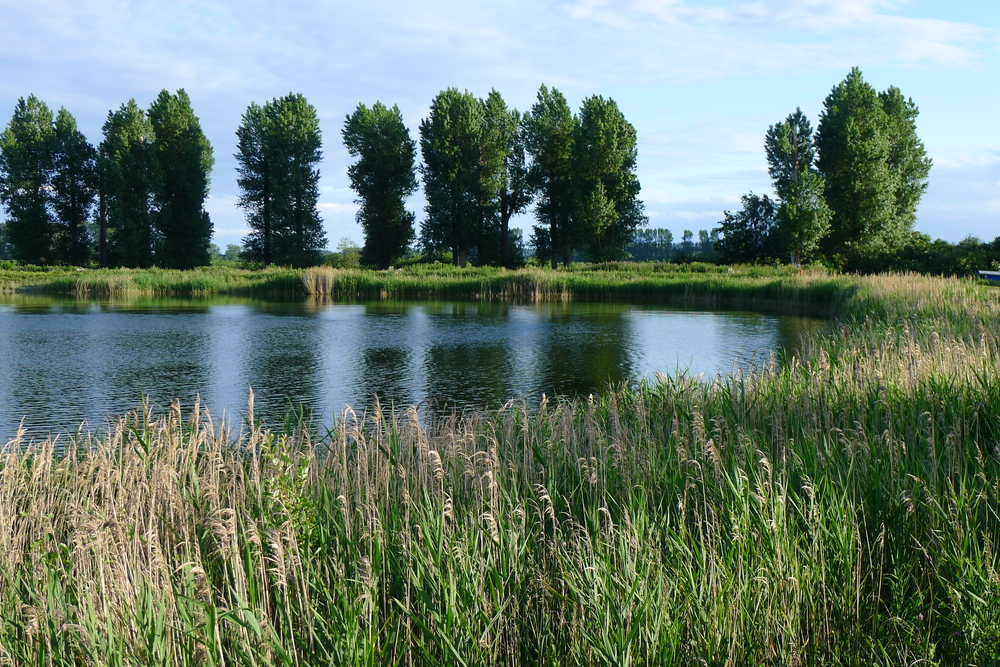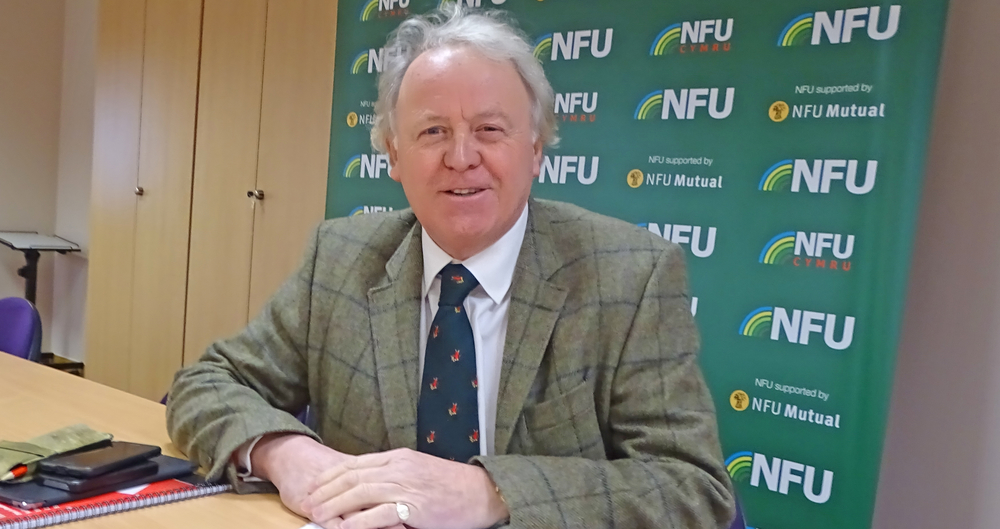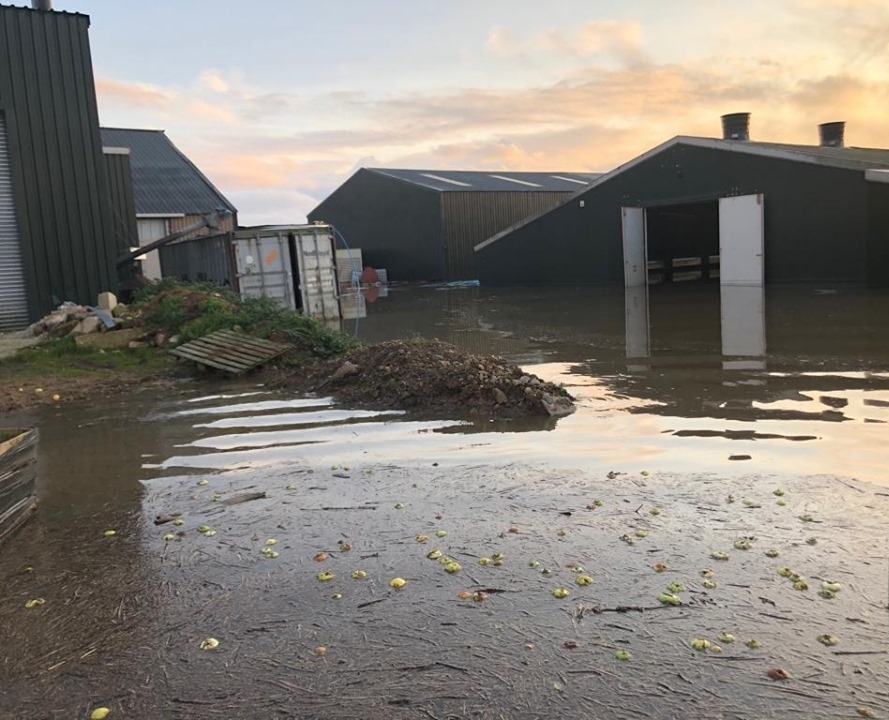But what will WRE mean for farmers? How will it make a difference to agricultural and horticultural businesses across the region, who need secure access to water to grow our food? We put some questions to WRE board member Lindsay Hargreaves:
Summarise your career to date
“I’m a farmer by background and I have been managing farm businesses in this region for more than 40 years. For the past 30 of those, water has been a big part of what I do in my day job.
“I’ve taken an interest in water policy, water for agriculture, in the broadest sense. My introduction to that was the very dry years at the end of the 1990s, which saw the start of the Lark Abstractor Group, led by Robin Upton, in response to a very serious situation.
“I joined that committee and that’s where I started working with the NFU’s Paul Hammett, now its national water resource specialist, and it’s just progressed from there.
“I’m the managing director of Frederick Hiam so I am still involved in farming and an active abstractor of some significance.”

What is your role within WRE?
“I am a director of WRE, which is now operating as a limited company. The NFU felt it was important to be involved with WRE, to have a seat at the table.
“I was approached to see if I would take on the role on behalf of the NFU and its members in water resource planning in the eastern region. I was delighted to play a part.
“I’m involved in developing and delivering WRE’s policies but clearly a big part of that is making sure I am properly representing the agricultural sector. It is vital farm businesses continue to have access to water in the future.”
How big is the water resources challenge facing the region?
“It is an enormous challenge and I think all water users feel threatened – those who represent the ecology of water, those who represent public water supply and those of us within agriculture.
“There is real uncertainty around whether or not we have enough water, and how we can manage that water properly, including by finding more effective ways of storing it.
“We are seeing more extreme weather events, including droughts and floods. Meanwhile the region is growing, putting increased pressure on the public water supply, while there is environmental pressure to reduce abstraction.
“We have a history of thinking in silos and it is only relatively recently that the barriers between different water users have started to come down.
“We are now talking to each other more openly about our requirements, recognising that we are only going to solve this challenge if we all become part of the solution.”
How well do you think agriculture is prepared to face this challenge?
“There is a level of preparedness towards assessing the challenges and the impact they could have.
“In terms of our ability to take on board the implications, to come up with ways of dealing with them, and finding an appropriate way forward for agriculture, I have no doubt we have that capability.
“But in terms of the commercial and financial preparedness for the challenge, life is very tough within agriculture.
“The type of measures that are going to be required to respond to some of these challenges will need major investment, not just of time and intellect but also of hard cash.
“Agriculture per se is not in a good place, or well positioned to take on board that financial responsibility and it will have to use all the wit and guile it can, including seeking alternative sources of finance, to get to where it needs to be.”
Why should farmers care about the work of WRE?
“WRE is an organisation that has the backing of government, the backing of Defra. Its charge is to develop multi-sector regional solutions, so this is a big opportunity for agriculture. We are being given this mechanism to get our requirements, our needs, into a regional and national strategy.
“We should care because if we don’t then people – the system, the establishment, the regulators – will make those decisions for us.”
What can farmers expect from WRE?
“As with any new organisation, WRE has to have time to find its feet. We’re going through that phase now but things are already happening on the ground. There’s a very strong likelihood that within this region, in the longer term, we will have much greater resilience.
“There’s a suggestion of building some very large reservoirs, which will be integrated into the whole water supply. This will help all water users including, and especially, agriculture.
“In the short term it’s about getting conversations going. Work has already started on some relatively modest projects, there is information gathering and funding has been sought to support initial research, on which we can build and develop these longer-term ideas.”
What can individual farm businesses do to help meet the challenge?
“For individual businesses it is all about using water resources carefully, efficiently and protecting your supplies.
“There are certain steps businesses can take to protect access, but they are relatively limited so it’s important that individuals get involved in the bigger picture.
“This doesn’t mean everyone giving up a lot of time. It can be as modest as supporting a local initiative. It can be getting more involved and becoming more of a water champion.
“It’s important to try and adopt the right mindset and culture, as well. If your response to WRE is uncertainty, possibly suspicion or even hostility then give someone a chance to explain what it is all about and to convince you that it is in your interests to support this.
“I believe it is only by taking a positive attitude, and working with other stakeholders, that we will move forward and make the gains we need to make.”
From a farming perspective, how should WRE be seen as a success?
“For WRE to be viewed as a success in five years’ time, we need to see this regional policy, integrated with national policy, seriously taking shape.
“We need to be at a stage where schemes such as reservoir construction are actually happening. We might not be digging soil by then but they will be beyond the point of no return and part of a national strategy.
“We can judge it a success if agriculture can look at it and say we have worked hard, fought our corner and achieved access to new water to allow us to carry on our businesses in a way we believe is appropriate, not only at individual farm level but also as part of a nationwide food and farming strategy.”
You might also be interested in:

